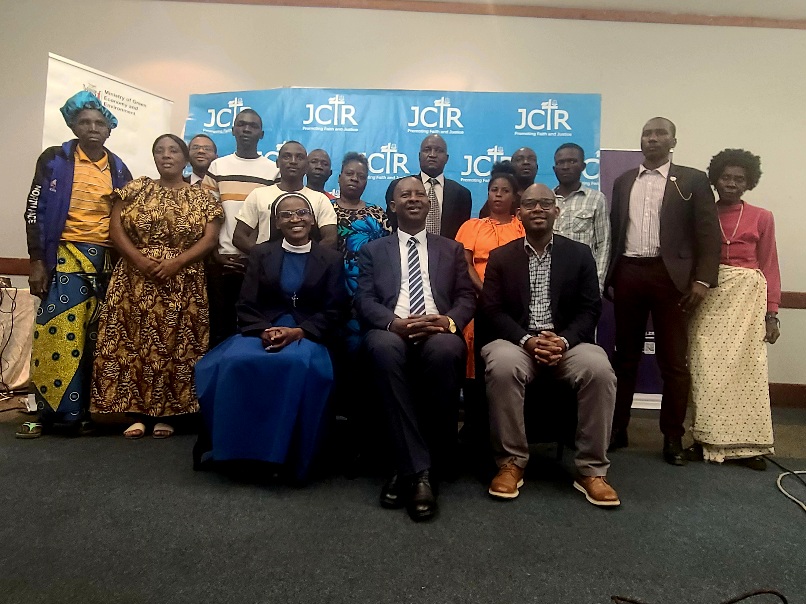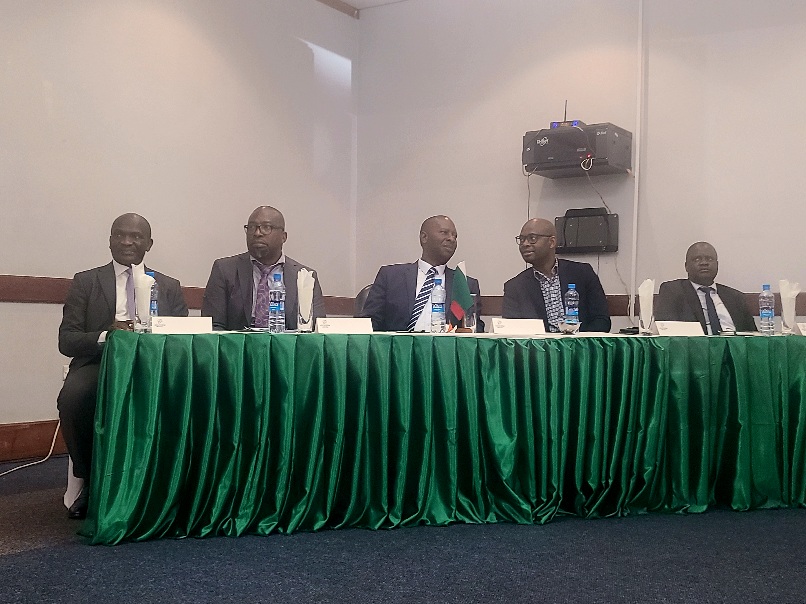Climate crisis hits Zambia
 Extreme weather, deforestation, and environmental degradation are threatening food security, water supply, livelihoods, and economic growth, demanding urgent action from government, civil society, and communities.
Extreme weather, deforestation, and environmental degradation are threatening food security, water supply, livelihoods, and economic growth, demanding urgent action from government, civil society, and communities.By Francis Maingaila
Lusaka, Zambia, 24 – (26-08-2025) – Zambia is grappling with the harsh realities of climate change, as prolonged droughts, floods, erratic rainfall, and widespread land degradation are already affecting millions. At the National Summit on Climate Change Adaptation and Environmental Management in Lusaka, government leaders, civil society, and faith-based organizations convened to push for urgent, inclusive, and accountable action to safeguard the country’s future.
Minister of Green Economy and Environment, Hon. Mike Mposha, warned that climate change is no longer a distant threat but a present and growing danger requiring unified action from all Zambians. Speaking under the theme “Climate Action for Inclusive Growth – Protecting Zambia’s Environment, Empowering Its People,” Mposha emphasized that the government is taking deliberate steps to mainstream climate adaptation and environmental protection across all sectors.
“Climate change is more than an environmental crisis. It is a moral, social, and economic challenge that disproportionately affects the poor, the marginalized, and the voiceless,” Mposha said. “Our response must embrace climate justice, ensuring that vulnerable groups, especially women, youth, and rural communities, are empowered to lead and benefit from the transition to a green economy.”
He cited erratic rainfall patterns, prolonged droughts, flash floods, biodiversity loss, and land degradation as evidence of climate change’s mounting toll. To counter these challenges, the government is implementing several policy frameworks, including the National Climate Change Policy, the National Adaptation Plan (2023–2035), and the Eighth National Development Plan, alongside revised Nationally Determined Contributions (NDCs) under the Paris Agreement.
Mposha highlighted initiatives in green finance, carbon markets, renewable energy, climate-smart agriculture, and community-based natural resource management, noting that these programs aim to protect ecosystems while creating jobs for young people and women.
Responding to concerns about pollution in Chambeshi caused by Sino-Metals, Mposha revealed that the government invoked the Environmental Management Act to take over the assessment process after disputes with the polluter. Interim compensation has been provided to 150 affected households, and a comprehensive scientific assessment is underway to determine long-term impacts.
He also announced the promotion of clean cooking solutions such as briquettes to reduce dependence on charcoal and firewood, which are major contributors to deforestation.
“No single actor can address climate change alone,” Mposha said, stressing the importance of partnerships with civil society, faith-based organizations, and the private sector. He reassured delegates that by 2025, robust monitoring systems will track climate investments and outcomes across sectors.
“Together, we can build a green, inclusive, and climate-resilient economy where both people and nature thrive in harmony,” he concluded.

Meanwhile, the Jesuit Centre for Theological Reflection (JCTR) warned that Zambia risks deeper food insecurity, economic instability, and widening inequality if stakeholders fail to act decisively.
JCTR Executive Director, Fr. Daniel Mutale, said climate change is no longer an abstract issue but a crisis destroying livelihoods today.
“Farmers are facing failed harvests, families are going hungry, and communities are being displaced by floods and droughts. Our economy is increasingly vulnerable to environmental shocks. These realities demand more than talk—they demand bold action and accountability,” Fr. Mutale said.
While commending the Ministry for launching Zambia’s National Adaptation Plan, he cautioned that policies risk remaining “on paper” without concrete financing, grassroots involvement, and political will.
“We cannot afford adaptation policies that look good in reports but fail to reach the poor and marginalized. Climate justice must be about people, not bureaucracy,” he stressed.
Fr. Mutale reminded policymakers that climate change is a justice issue, disproportionately affecting those who contribute least to global emissions. He emphasized that a green economy cannot be built on inequality and must deliver sustainable jobs, accessible livelihoods, and real resilience for ordinary Zambians.
He urged leaders to commit to climate-smart agriculture, early warning systems, and financing for adaptation that directly benefits vulnerable groups, while ensuring youth and local communities have a voice in shaping Zambia’s climate agenda.
“We must not leave this summit with empty declarations. We must leave with commitments that can be measured, tracked, and held accountable. Anything less is a betrayal of future generations,” he warned.
Closing his address, Fr. Mutale invoked Pope Francis’ Laudato Si’, noting that environmental and social crises are inseparable. “Zambia’s climate struggle is not just about saving trees—it is about saving people. It is about confronting inequality and safeguarding our future. We must act now, not tomorrow,” he concluded.
For over three decades, JCTR has used research, advocacy, and faith-based engagement to push for policies that safeguard human dignity and social justice. Its work in rural and urban communities has supported the adoption of sustainable practices and climate-resilient livelihoods, reinforcing the urgent call for action presented at the summit.



Comments
Post a Comment